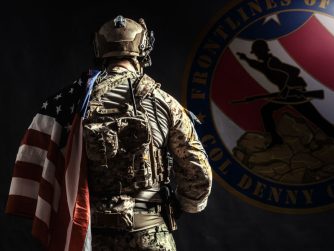On 6 Aug 1945, Hiroshima, Japan, was struck with the uranium bomb, Little Boy, from the B-29 bomber, Enola Gay, piloted by Col. Paul Tibbets of the US Army Air Force. The atom bomb killed an estimated 140,000 people in the first use of a nuclear weapon in warfare. The bomb was a uranium fission weapon and the yield was in the region of 20,000 tons of TNT. Sixty percent of the city was destroyed in the blast and the firestorm that follows. About 80,000 Japanese were killed. Many more were severely burned and others become ill later, from exposure to radiation. It was not the most devastating bombing attack of the war but the economy of the effort involved in sending only one plane on a mission to destroy a city shows only too well the complete change in military and political thinking which had begun. But this damage was not enough to get the Japanese government to agree to unconditional surrender.
The US had already planned to drop a second atomic bomb, nicknamed “Fat Man,” on August 11 in the event of such recalcitrance, but bad weather expected for that day pushed the date up to August 9th. So at 1:56 am, a B-29 bomber took off from Tinian Island under the command of Maj. Charles Sweeney. Nagasaki was a shipbuilding center, the very industry intended for destruction. The bomb was dropped at 11:02 am, 1,650 feet above the city. The explosion unleashed the equivalent force of 22,000 tons of TNT. The hills that surrounded the city did a better job of containing the destructive force; the number killed was estimated at between 60,000 and 80,000 (exact figures are impossible, the blast having obliterated bodies and disintegrated records). We had another atom bomb that would be ready to use against Japan by August 17 or 18, but it was not necessary.
Even though the War Council still remained divided (“It is far too early to say that the war is lost,” opined the Minister of War), Emperor Hirohito, by request of two War Council members eager to end the war, met with the Council and declared that “continuing the war can only result in the annihilation of the Japanese people….” The Emperor of Japan gave his permission for unconditional surrender. Thus ended WWII.
As terrible as this damage to human life was, the alternative was to invade the Japanese Islands; it was estimated that each side would lose a million men in that fighting—and that doesn’t count civilian casualties. The bombing was horrible, but not bombing would have been worse.



